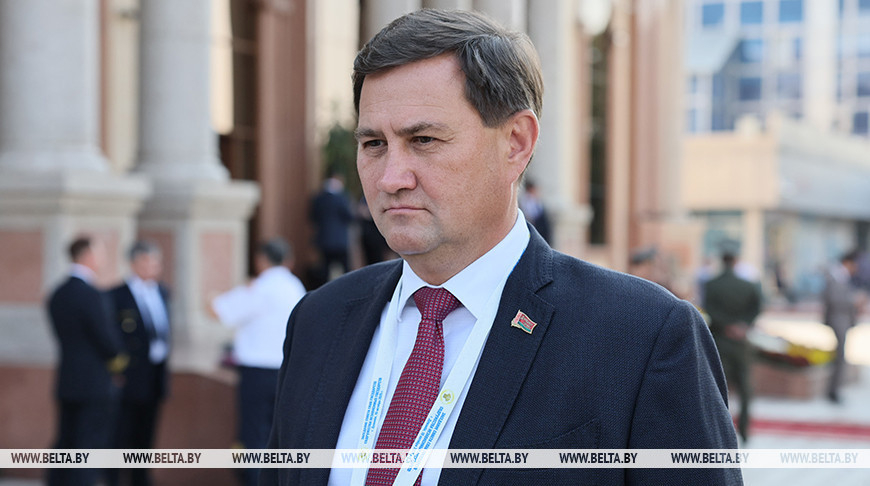
DUSHANBE, 10 October (BelTA) - Following the CIS summit in Tajikistan, Belarusian Minister of Foreign Affairs Maxim Ryzhenkov commented on the dual-faced position of some partners within integration structures in response to a question from the First News TV Channel.
Maxim Ryzhenkov confirmed that some countries are indeed employing this pattern of behavior. Primarily, this involves their use of opportunities within agreements and other documents on economic cooperation. “Some states are still quite willing to maintain channels of interaction through customs and border services, and on transport links. Naturally, anything related to the economy is of interest to them,” the minister said. “However, in those countries that have already set out or intend to set out on the path of a hypothetical accession to the European Union (a kind of fetish, a distant mirage that will never materialize for them)... Of course, they are being forced to leave the corresponding cooperation mechanisms within the CIS.”
According to Maxim Ryzhenkov, similar examples exist in the CSTO as well. “We also have one partner who has not been actively participating in the CSTO lately. Because it is being given certain conditions there. But they, of course, remain in parts which are beneficial for them,” the minister said.
Belarus, for its part, consistently advocates for preserving, not destroying, integration ties, especially on the economic track. It argues against yielding to various external threats or promises, and instead calls for joint work to build greater resilience in their economies.
This was precisely the point emphasized by Belarusian President Aleksandr Lukashenko in his speech at the current CIS summit. “We must not squander the legacy built by previous generations of our people. Let us see each other as partners and pursue deeper cooperation with no topics off the table,” the Belarusian leader said.
He reiterated his thesis that the economy is of paramount importance. “Invariably, our discussions circle back to the same thing: our joint economic activity on the common market of the [former] Soviet Union. This is not about returning to the system that existed in the Soviet Union. The common market was enormous. Maybe we should just drop all these convoluted discussions and finally get down to economic matters, considering what every one of us actually needs?” the president asked.
“At the root of many, if not all, modern conflicts lie economics and competition. To withstand this struggle, ensure sustainable development, and improve the prosperity of all our countries, we need to strengthen our economic foundation and deepen trade and investment cooperation, as well as industrial collaboration,” Aleksandr Lukashenko stressed.













